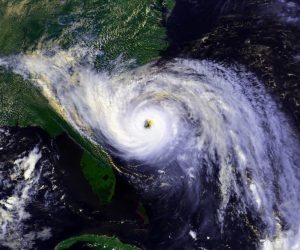Hurricane season runs from June 1st to November 30th, so just because fall temperatures have  arrived doesn’t mean that the threat is over. Hurricanes and tropical storms obviously affect businesses in coastal areas the most. However, they can also have a negative impact on those in other areas of the country. No matter where they are located, businesses must have a contingency plan to deal with the fallout of a hurricane.
arrived doesn’t mean that the threat is over. Hurricanes and tropical storms obviously affect businesses in coastal areas the most. However, they can also have a negative impact on those in other areas of the country. No matter where they are located, businesses must have a contingency plan to deal with the fallout of a hurricane.
Coastal Regions
Businesses in coastal regions should find out whether they are located in an evacuation zone or a contingency zone, which are most impacted by storms. Businesses in either of these zones need a storm preparedness plan that clearly spells out when they will close and how employees will be notified. Next, make a list of staff members who can assist with boarding up windows and doors, anchoring outbuildings, turning off utilities and other hurricane preparation tasks. Business owners must also decide whether to elevate expensive equipment to prevent water damage or to simply move it to a safer location.
Businesses must also prepare for outages even when a hurricane or tropical storm does not cause an evacuation. High winds and fallen trees can result in the loss of power and water for a short period. Back-up generators and an ample supply of bottled water should be kept on hand in case this occurs.
Non-Coastal Regions
Businesses located in non-coastal areas often think they are safe from the devastating effects of a hurricane. While they may not suffer the physical damage associated with these storms, they can still suffer a devastating impact on their business. Businesses must consider whether their manufacturers and suppliers are located in areas near the coast. If so, a hurricane may shut down operations for a short period or cause permanent damage to the supplier’s equipment or facilities. Additionally, delivery services via air and ground may temporarily suspend operations to avoid going through hurricane affected areas. Businesses nationwide must have a backup plan to ensure that their business continues to run as normal and reduce the impact that the hurricane has on their own bottom line.






